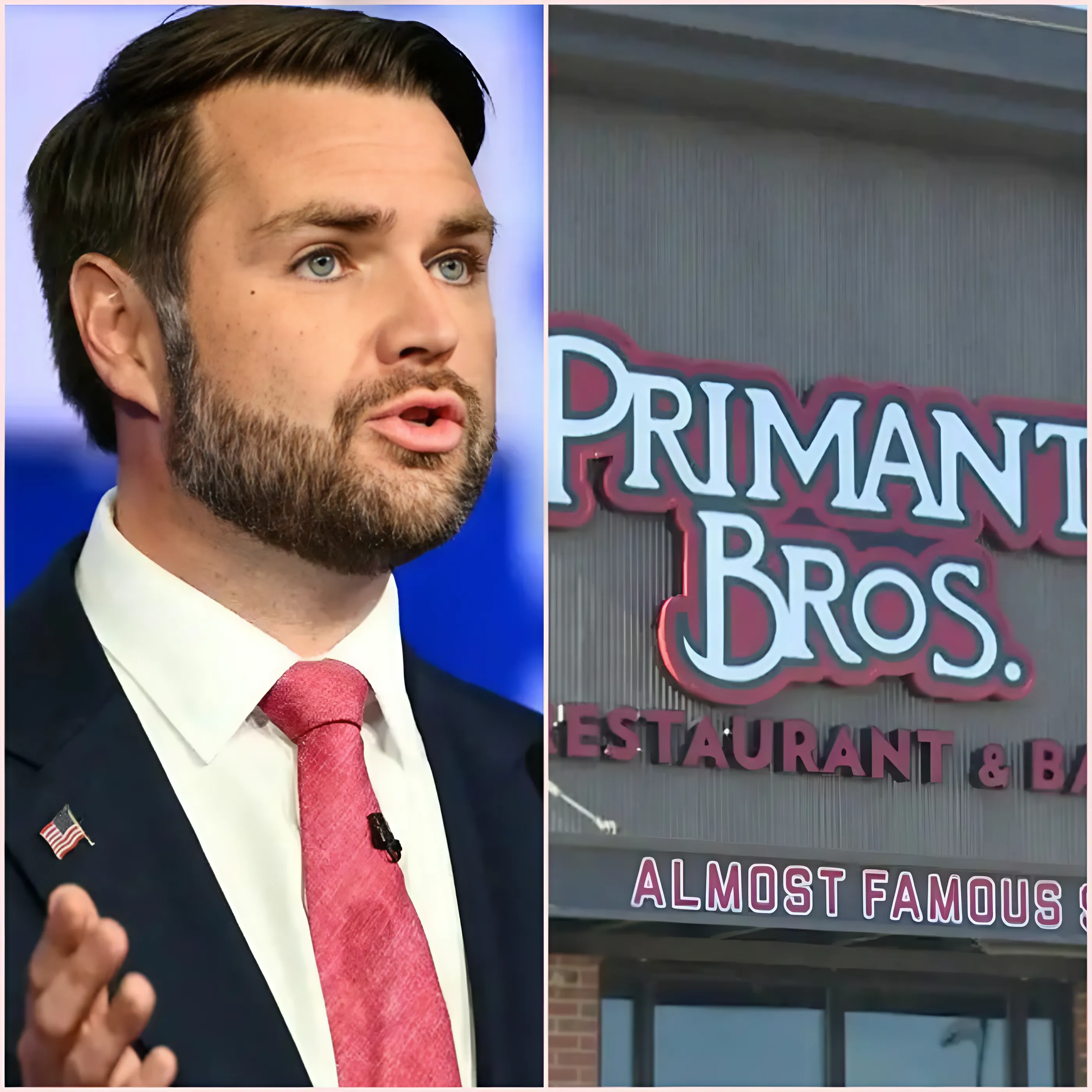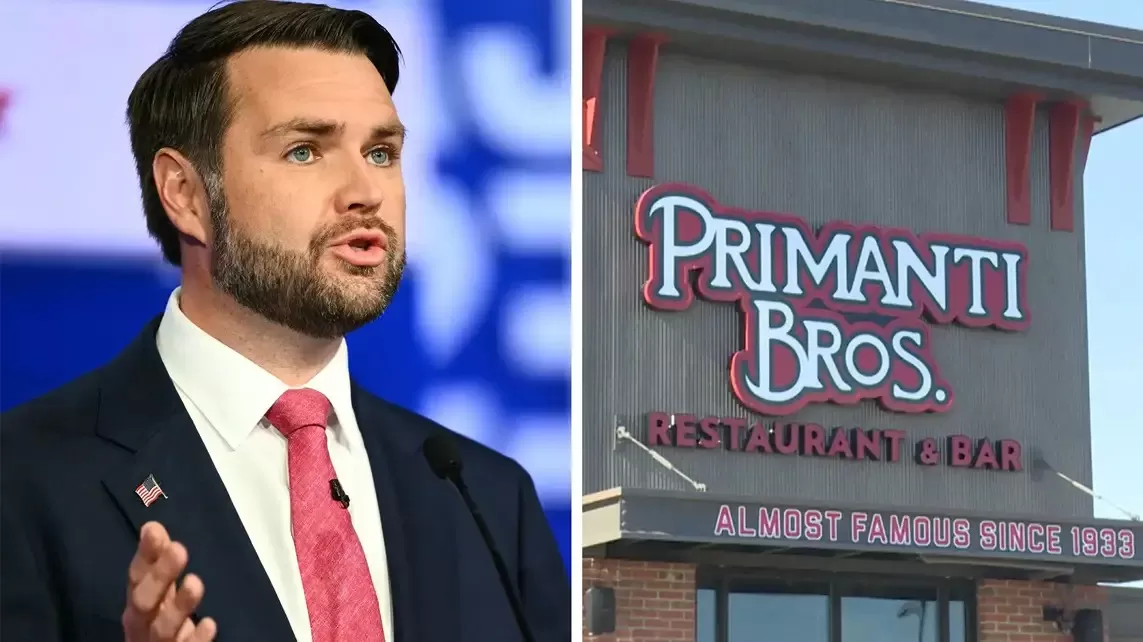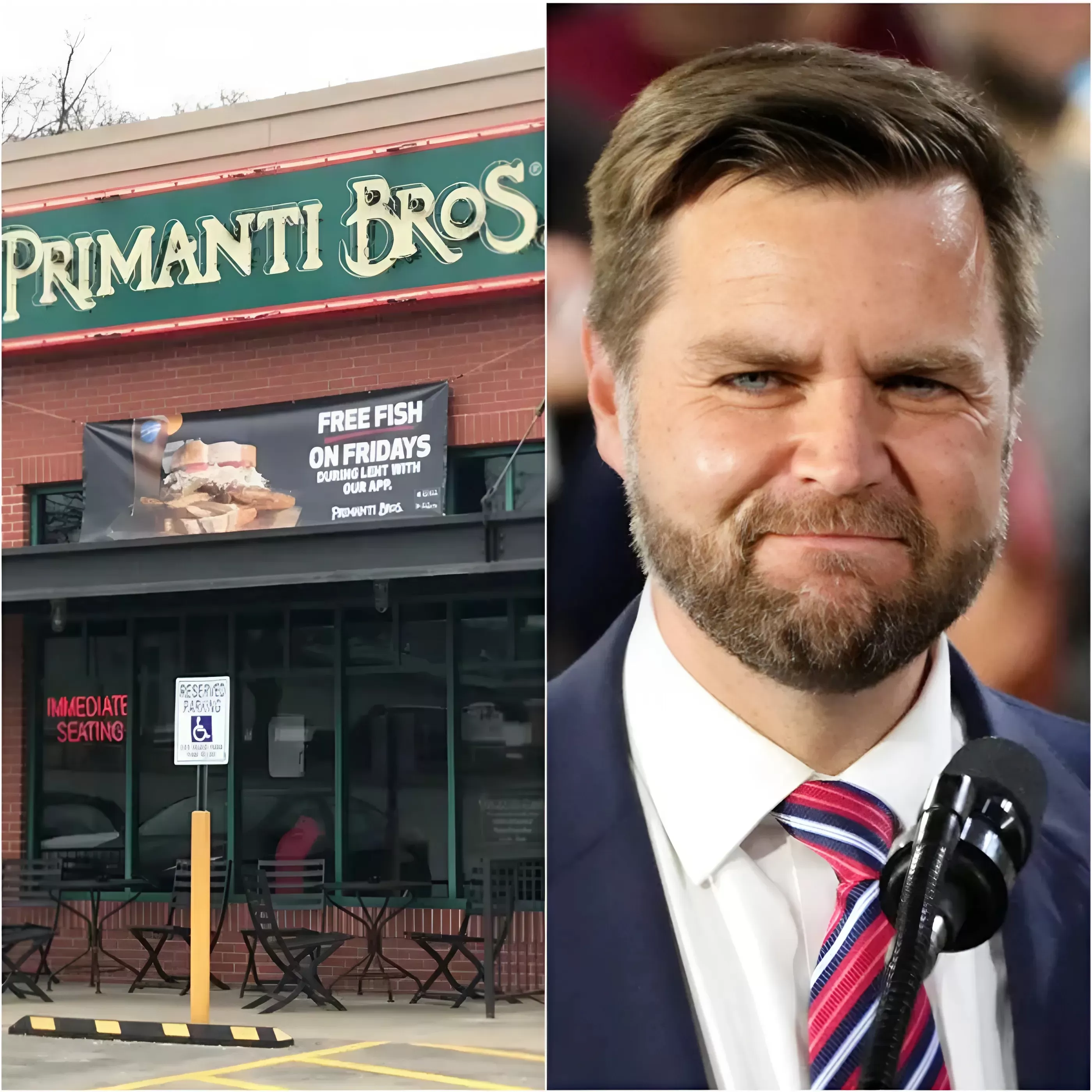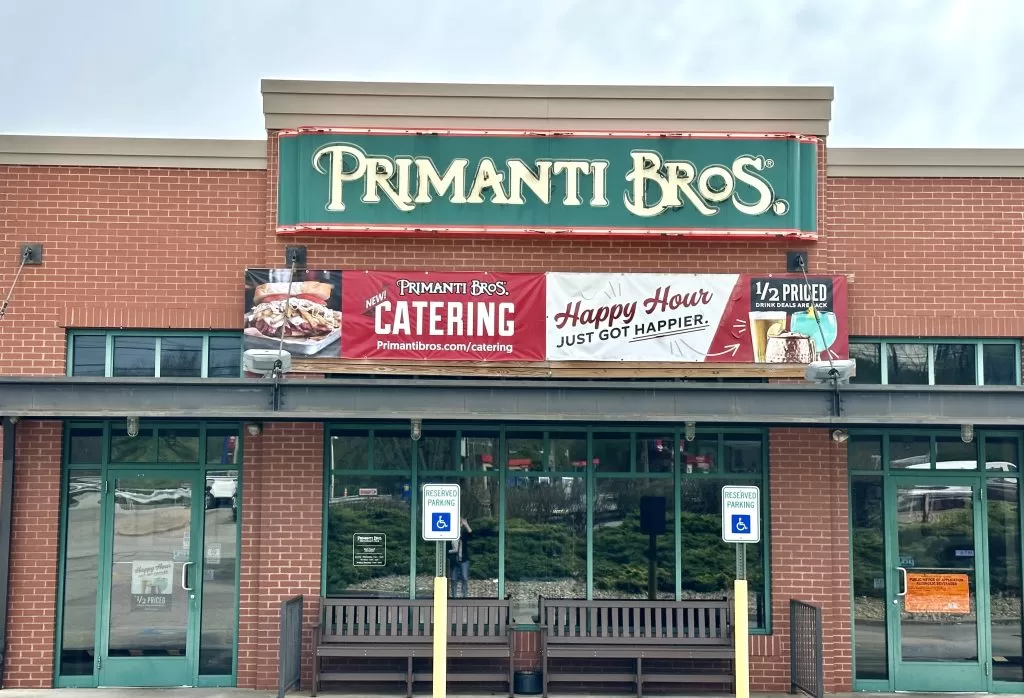In what can only be described as the ultimate sandwich scandal of the century, Primanti Bros., the beloved Pittsburgh-based eatery known for its famous fries-on-everything sandwiches, has found itself facing an unprecedented boycott that has resulted in a staggering $50 million in losses. To make matters worse, 10 of its major sponsors have pulled out, leaving the once-iconic restaurant chain scrambling for damage control.


What could cause such a beloved local favorite to become a national target? Well, it all started with J.D. Vance—a political figure who, until recently, no one expected would be part of a story involving pastrami, coleslaw, and political fallout. Now, Primanti Bros. finds itself at the center of a national storm, with the situation spiraling out of control faster than anyone could have imagined.


It all began on what seemed like an ordinary day in North Versailles, Pennsylvania, where J.D. Vance, the Republican vice-presidential nominee, tried to make a casual stop at a local Primanti Bros. restaurant. According to several reports, Vance had planned to shake a few hands, eat a sandwich, and maybe tip the hardworking staff. Simple, right?
A manager at the restaurant reportedly told Vance and his team that this was “not a campaign stop” and that he was “not allowed” to enter the establishment. To add insult to injury, the manager allegedly threatened to call the police if Vance tried to walk through the doors. This might have been a small misunderstanding in any other situation, but this was J.D. Vance—running for the second-highest office in the country. The incident was caught on video and immediately went viral.
The response was swift and brutal. Vance supporters, angered by what they saw as blatant political discrimination, took to social media to express their outrage. Within hours, #BoycottPrimantiBros was trending, with calls for customers to avoid the sandwich chain like it was serving up a side of political bias with every meal.
What started as a local dispute quickly snowballed into a full-fledged boycott, with Vance’s supporters calling for the restaurant’s patrons to stand up against what they viewed as corporate bias. Soon, it wasn’t just about the incident at North Versailles—Primanti Bros. found itself accused of political favoritism after it was revealed that Vice President Kamala Harris had visited the very same location just a few weeks earlier. And unlike Vance, she was greeted with open arms, handshakes, and photo ops.
Critics of the restaurant accused it of playing politics with pastrami, and the calls for a boycott only grew louder. By the end of the first week, the restaurant was hemorrhaging customers, and the situation was becoming dire.
“It’s not about the sandwiches anymore,” said one boycott supporter on social media. “It’s about standing up for fairness and showing these businesses that they can’t pick and choose which politicians they serve based on their own bias.”
Primanti Bros. may have initially hoped that the boycott would blow over like a summer storm, but that storm quickly turned into a hurricane of lost revenue. The chain, which has long been a staple in Pittsburgh and beyond, saw its sales plummet as angry patrons stayed away in droves.
Within a matter of weeks, the financial toll became clear: Primanti Bros. had lost a staggering $50 million in revenue, with no end to the boycott in sight. The once-crowded dining rooms now sit half-empty, and the lines that used to stretch out the door are gone.
“I’ve been coming here for 30 years, and I can’t believe what it’s come to,” said one disappointed customer. “It’s just sad. I loved this place, but I can’t support it anymore.”
But the financial losses didn’t stop there. Major sponsors who once proudly supported the restaurant began to distance themselves from the controversy. By the end of the month, 10 of Primanti Bros.’ biggest sponsors had pulled out, cutting ties with the restaurant chain in a bid to avoid the fallout.
Some of the biggest names in food and beverage, including Iron City Beer and Heinz, have severed their relationships with Primanti Bros., leaving the restaurant scrambling to find new partners. One by one, these companies released statements that boiled down to the same message: “We didn’t sign up for this.”
“We’re a brand that focuses on bringing people together, not dividing them,” said a spokesperson for one of the departing sponsors. “Given the current climate surrounding Primanti Bros., we feel it’s best to end our partnership at this time.
Others were less diplomatic, with one sponsor bluntly stating, “We can’t afford to be associated with any company caught up in a political firestorm, no matter how good their sandwiches are.”
The loss of sponsors has been a crushing blow to Primanti Bros., which relies heavily on corporate partnerships to promote its brand. Without these key backers, the future of the chain looks increasingly uncertain.
As the boycott continues to speed up, Primanti Bros. finds itself at a critical crossroads. The restaurant chain has issued statements attempting to walk back the controversy, but so far, these efforts have done little to quell the outrage. In one statement, the company insisted that it “welcomes customers from all political backgrounds” and that the incident involving J.D. Vance was a misunderstanding.
“We pride ourselves on serving great food to great people, regardless of their political views,” the statement read. “We regret any confusion that has arisen from this incident and are committed to ensuring that every customer feels welcome in our establishments.”
However, many see the statement as too little, too late. The boycott shows no signs of slowing down, and Primanti Bros. is left grappling with the fallout of a situation that has spiraled out of control.
At this point, the question isn’t whether Primanti Bros. can recover from the financial hit—it’s whether the chain will survive at all. With $50 million in losses and 10 major sponsors gone, the future looks bleak for the sandwich giant. The company will need to make a dramatic turnaround to win back the trust of customers and sponsors alike, and so far, it’s unclear whether they have a plan to do so.
Some marketing experts have suggested that Primanti Bros. could issue a more heartfelt apology or even launch a new campaign focused on unity and community. But with emotions running high, it’s hard to say whether such efforts would be enough to turn the tide.
In the meantime, the boycott continues to speed up, and the once-beloved Primanti Bros. remains at the center of a political maelstrom that shows no signs of slowing down.
Will this be the end of the road for the iconic Pittsburgh eatery? Only time—and a lot of lost revenue—will tell.